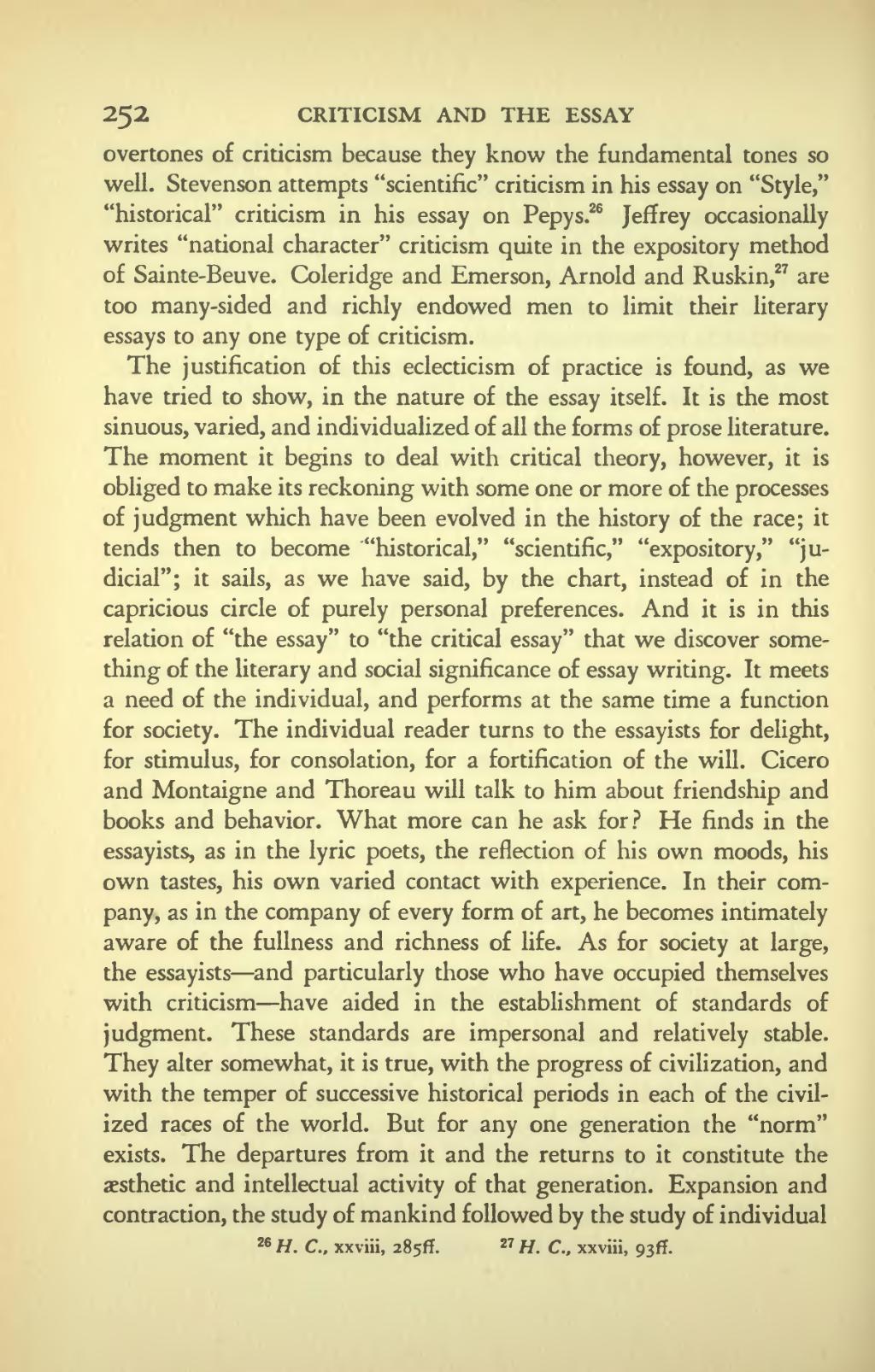overtones of criticism because they know the fundamental tones so well. Stevenson attempts "scientific" criticism in his essay on "Style," "historical" criticism in his essay on Pepys.[1] Jeffrey occasionally writes "national character" criticism quite in the expository method of Sainte-Beuve. Coleridge and Emerson, Arnold and Ruskin,[2] are too many-sided and richly endowed men to limit their literary essays to any one type of criticism.
The justification of this eclecticism of practice is found, as we have tried to show, in the nature of the essay itself. It is the most sinuous, varied, and individualized of all the forms of prose literature. The moment it begins to deal with critical theory, however, it is obliged to make its reckoning with some one or more of the processes of judgment which have been evolved in the history of the race; it tends then to become "historical," "scientific," "expository," "judicial"; it sails, as we have said, by the chart, instead of in the capricious circle of purely personal preferences. And it is in this relation of "the essay" to "the critical essay" that we discover something of the literary and social significance of essay writing. It meets a need of the individual, and performs at the same time a function for society. The individual reader turns to the essayists for delight, for stimulus, for consolation, for a fortification of the will. Cicero and Montaigne and Thoreau will talk to him about friendship and books and behavior. What more can he ask for? He finds in the essayists, as in the lyric poets, the reflection of his own moods, his own tastes, his own varied contact with experience. In their company, as in the company of every form of art, he becomes intimately aware of the fullness and richness of life. As for society at large, the essayists—and particularly those who have occupied themselves with criticism—have aided in the establishment of standards of judgment. These standards are impersonal and relatively stable. They alter somewhat, it is true, with the progress of civilization, and with the temper of successive historical periods in each of the civilized races of the world. But for any one generation the "norm" exists. The departures from it and the returns to it constitute the æsthetic and intellectual activity of that generation. Expansion and contraction, the study of mankind followed by the study of individual
